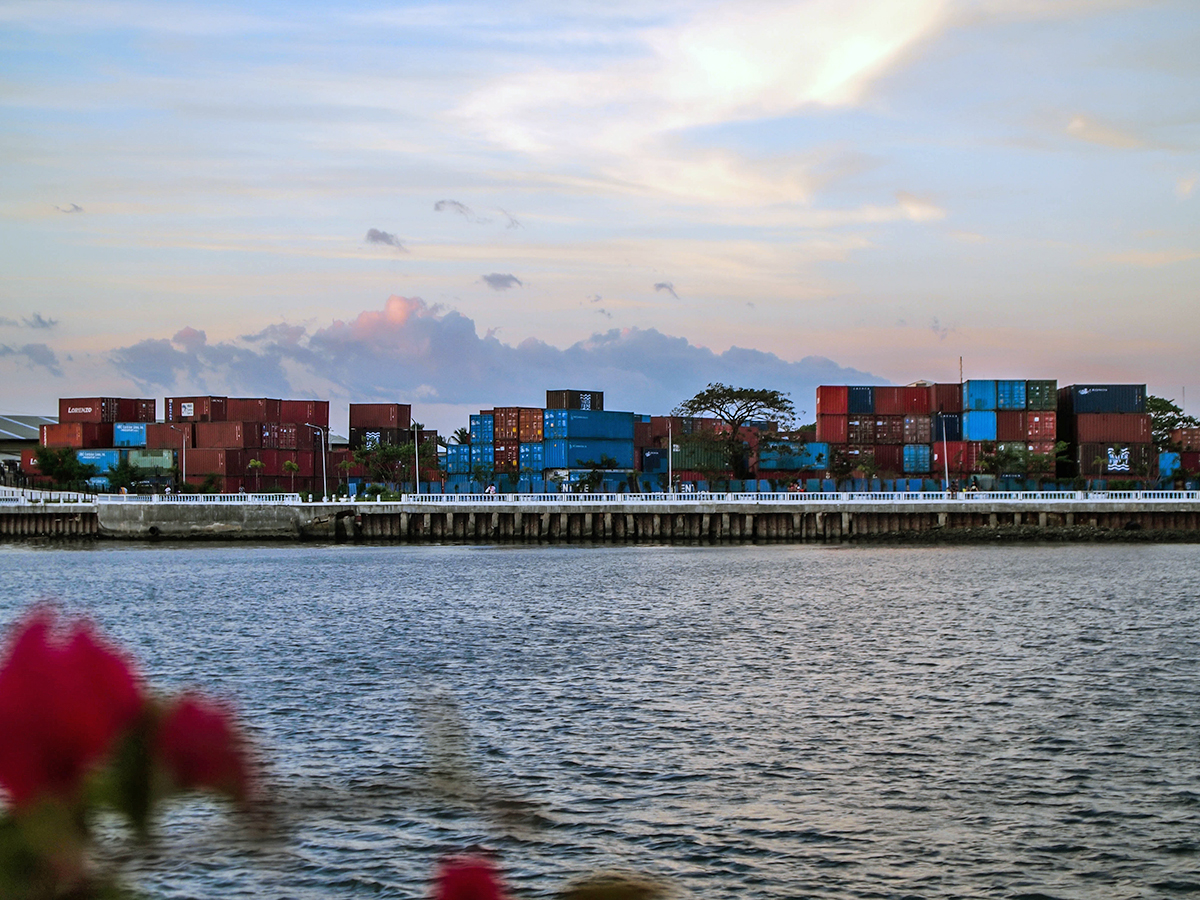BusinessEurope Headlines No. 2020-13
Trade and investment: coordination needed to tackle impact of COVID-19

The impact of COVID-19 on European industry and supply chains is dramatic. To share a number of concerns with the European Commission, BusinessEurope sent a letter to European Commission Executive Vice-President Valdis Dombrovskis on 7 April on the impact that the current COVID-19 pandemic will have on trade and investments. The letter, signed by Director General Markus J. Beyrer highlights that due to containment measures taken to fight the crisis, both demand and consumers’ expenditure have decreased, and as a consequence orders are cancelled, facilities are closed, and production is reduced. Moreover, some measures adopted by state actors may cause an additional burden to economic operators, many of which are SMEs, and upset long-established supply chains that will be essential to overcome this crisis and support economic recovery. In this context, BusinessEurope welcomes the efforts of the Commission to maintain the openness of the EU market and ensure a common approach among EU member states and greater global coordination. At the same time, BusinessEurope supports that these measures, which are absolutely necessary under the current circumstances, should be temporary in nature and lifted once the crisis is over.
![]() Contact: Luisa Santos / Sofia Bournou
Contact: Luisa Santos / Sofia Bournou
Transport sector is crucial to face COVID-19
 During this crisis, people and businesses rely on timely delivery of goods, including basic necessities such as food and medical supplies. Therefore, preserving the free flow of goods and the working of supply chains across the EU is crucial. Even though most EU Member States have publicly committed to keeping their transport system functioning, freight transport is being increasingly challenged by newly created cross-border checks and restrictions. It is of outmost importance that border crossings do not take more than 15 minutes and that we ensure safe free movement of all workers involved in international transport, which must be done in a harmonised and coordinated way. In these exceptional times when businesses struggle to survive, exceptional measures are required. The health crisis has forced the EU to adapt its decision-making. Therefore, any new legislation, such as the Mobility Package 1, should be carefully assessed taking into account the current crisis situation, to avoid further substantive pressure on businesses that would jeopardise their existence and jobs. Read more here.
During this crisis, people and businesses rely on timely delivery of goods, including basic necessities such as food and medical supplies. Therefore, preserving the free flow of goods and the working of supply chains across the EU is crucial. Even though most EU Member States have publicly committed to keeping their transport system functioning, freight transport is being increasingly challenged by newly created cross-border checks and restrictions. It is of outmost importance that border crossings do not take more than 15 minutes and that we ensure safe free movement of all workers involved in international transport, which must be done in a harmonised and coordinated way. In these exceptional times when businesses struggle to survive, exceptional measures are required. The health crisis has forced the EU to adapt its decision-making. Therefore, any new legislation, such as the Mobility Package 1, should be carefully assessed taking into account the current crisis situation, to avoid further substantive pressure on businesses that would jeopardise their existence and jobs. Read more here.
![]() Contact: Ema Radmilovic
Contact: Ema Radmilovic
Customs measures are essential in response to corona crisis
 In a letter addressed to the European Commissioner for the Economy, Paolo Gentiloni, and forwarded to Trade Commissioner Phil Hogan, the European business community calls on the Commission to temporarily suspend tariffs to facilitate the import of critical goods, introduce measures to improve business liquidity, and improve certain customs procedures to ease the administrative burden on business. These measures are essential to mitigate the impact of COVID-19 as much as possible, and will also enable a swifter economic recovery. Going forward, we also call on Commissioner Gentiloni to consider which of these simplifications and digital innovations could offer long-term benefits, too. The European business community is fully involved in mitigating the impact of the coronavirus. The policy measures we have identified as required in the field of customs would help businesses facilitate the supply of critical goods required to curb the spread of the virus. They would also help companies mitigate the economic impact of supply chain disruptions that have resulted from the supply shock in China, the trade restrictive measures around the world, and intra-EU border controls and transport restrictions.
In a letter addressed to the European Commissioner for the Economy, Paolo Gentiloni, and forwarded to Trade Commissioner Phil Hogan, the European business community calls on the Commission to temporarily suspend tariffs to facilitate the import of critical goods, introduce measures to improve business liquidity, and improve certain customs procedures to ease the administrative burden on business. These measures are essential to mitigate the impact of COVID-19 as much as possible, and will also enable a swifter economic recovery. Going forward, we also call on Commissioner Gentiloni to consider which of these simplifications and digital innovations could offer long-term benefits, too. The European business community is fully involved in mitigating the impact of the coronavirus. The policy measures we have identified as required in the field of customs would help businesses facilitate the supply of critical goods required to curb the spread of the virus. They would also help companies mitigate the economic impact of supply chain disruptions that have resulted from the supply shock in China, the trade restrictive measures around the world, and intra-EU border controls and transport restrictions.
![]() Contact: Maurice Fermont
Contact: Maurice Fermont
New legal act endangers autonomy of social partners in Poland
 The European social partners (BusinessEurope, CEEP, SMEunited and ETUC) are calling for the immediate withdrawal of a new legal act that was adopted in the Polish parliament, which allows the Prime Minister to dismiss at will members of the Social Dialogue Council during the Covid-19 pandemic. On 1 April, the European social partners sent a joint letter to European Commission President Ursula von der Leyen to express deep concern at this new act, which endangers the autonomy of the Polish social partners. The autonomy of social partners is a founding element of social dialogue, guaranteed by international and European law. Furthermore, social dialogue is a key instrument to fight against the economic and social consequences of Covid-19 and governments, all over Europe, should be supporting social partners for them to succeed in this endeavour.
The European social partners (BusinessEurope, CEEP, SMEunited and ETUC) are calling for the immediate withdrawal of a new legal act that was adopted in the Polish parliament, which allows the Prime Minister to dismiss at will members of the Social Dialogue Council during the Covid-19 pandemic. On 1 April, the European social partners sent a joint letter to European Commission President Ursula von der Leyen to express deep concern at this new act, which endangers the autonomy of the Polish social partners. The autonomy of social partners is a founding element of social dialogue, guaranteed by international and European law. Furthermore, social dialogue is a key instrument to fight against the economic and social consequences of Covid-19 and governments, all over Europe, should be supporting social partners for them to succeed in this endeavour.
![]() Contact: Robert Plummer
Contact: Robert Plummer
Experts discuss Sustainable Finance at BusinessEurope's online conference
 Concerning sustainable finance, "a well-designed taxonomy can help closing the investment gap. The recently adopted regulation however, follows a new approach with unforeseen implications for corporates that now need thorough discussions with industry", said Deputy Director General Alexandre Affre to an audience of more than 100 people that participated at BusinessEurope's first online workshop on Sustainable Finance on 2 April. Martin Spolc and Alain Deckers, both Heads of Unit at the European Commission Directorate-General for Financial Stability, Financial Services and Capital Markets Union, and Helena Vines-Fiestas, Technical Expert, presented the state of play of the Commission's Sustainable Finance agenda and the recent Technical Expert Group report on the taxonomy. The presentations were followed by discussion with experts on the implications of the taxonomy regulation on businesses and the links with climate-related reporting and the Non-Financial Reporting Directive. A key conclusion was that further dialogue with the real economy is needed for a successful process, as Martin Spolc pointed out: “The expertise of the real economy will be extremely important for the work of the future Sustainable Finance Platform.”
Concerning sustainable finance, "a well-designed taxonomy can help closing the investment gap. The recently adopted regulation however, follows a new approach with unforeseen implications for corporates that now need thorough discussions with industry", said Deputy Director General Alexandre Affre to an audience of more than 100 people that participated at BusinessEurope's first online workshop on Sustainable Finance on 2 April. Martin Spolc and Alain Deckers, both Heads of Unit at the European Commission Directorate-General for Financial Stability, Financial Services and Capital Markets Union, and Helena Vines-Fiestas, Technical Expert, presented the state of play of the Commission's Sustainable Finance agenda and the recent Technical Expert Group report on the taxonomy. The presentations were followed by discussion with experts on the implications of the taxonomy regulation on businesses and the links with climate-related reporting and the Non-Financial Reporting Directive. A key conclusion was that further dialogue with the real economy is needed for a successful process, as Martin Spolc pointed out: “The expertise of the real economy will be extremely important for the work of the future Sustainable Finance Platform.”
Contact: Asdin El Habbassi
A step forward in industry-wide dialogue on access to credit
 European banking and SME organisations sent a letter to European Commission Vice-President Valdis Dombrovksis to inform that in the recent years there have been some important steps regarding dialogue between national banks and SMEs on access to finance. These banking and business representatives had in 2017 supported the adoption of a set of high-level principles (HLPs) in the presence of Vice-President Dombrovksis, with the aim to ensure that the feedback given by banks to their SME clients is sufficient for them to understand the reasons behind the bank’s decision regarding a credit application. The HLPs also aimed to contribute to a favourable business environment in Europe by supporting financing capacity. In the letter recently sent to Dombrovksis, the organisations state that the outcome of this process has been positive and encouraging as at national level, in the vast majority of cases, banking and SME associations have established a structured dialogue, which facilitates discussion on SME access to finance.
European banking and SME organisations sent a letter to European Commission Vice-President Valdis Dombrovksis to inform that in the recent years there have been some important steps regarding dialogue between national banks and SMEs on access to finance. These banking and business representatives had in 2017 supported the adoption of a set of high-level principles (HLPs) in the presence of Vice-President Dombrovksis, with the aim to ensure that the feedback given by banks to their SME clients is sufficient for them to understand the reasons behind the bank’s decision regarding a credit application. The HLPs also aimed to contribute to a favourable business environment in Europe by supporting financing capacity. In the letter recently sent to Dombrovksis, the organisations state that the outcome of this process has been positive and encouraging as at national level, in the vast majority of cases, banking and SME associations have established a structured dialogue, which facilitates discussion on SME access to finance.
![]() Contact: Daniele Olivieri
Contact: Daniele Olivieri
Calendar 
- 5 June: BusinessEurope Council of Presidents
- 22-26 June: EU Sustainable Energy Week 2020
Reminder: please have a look at our privacy policy